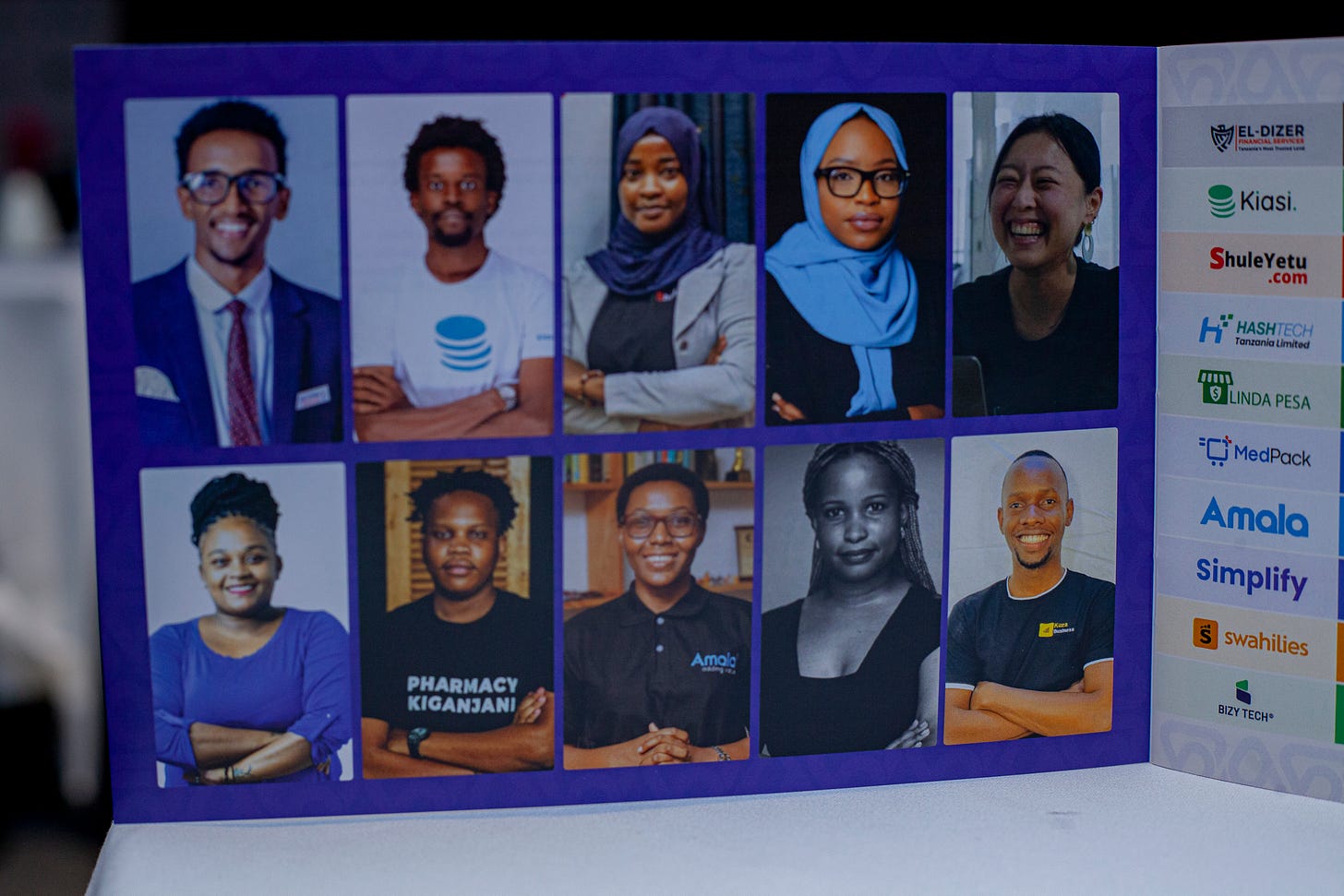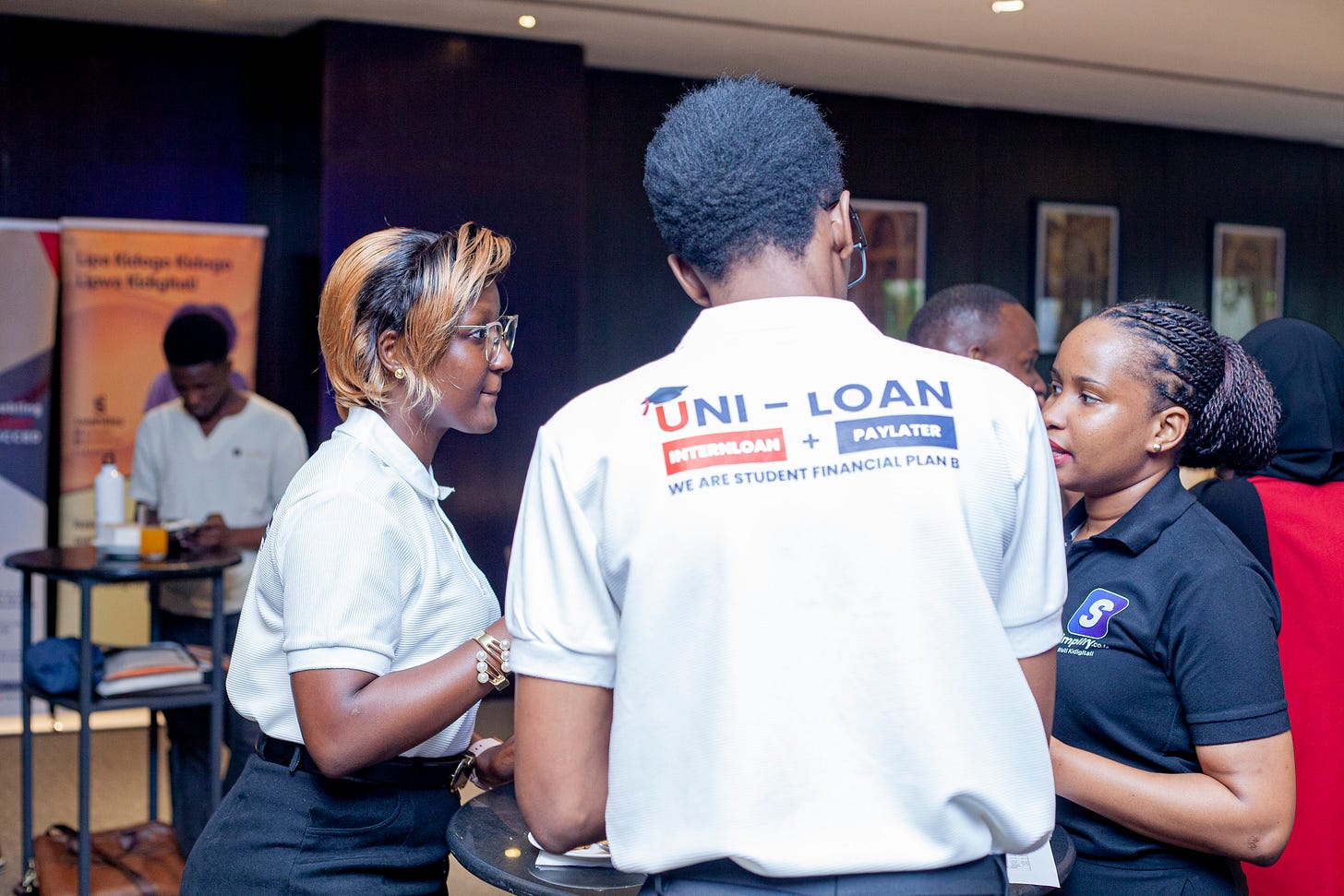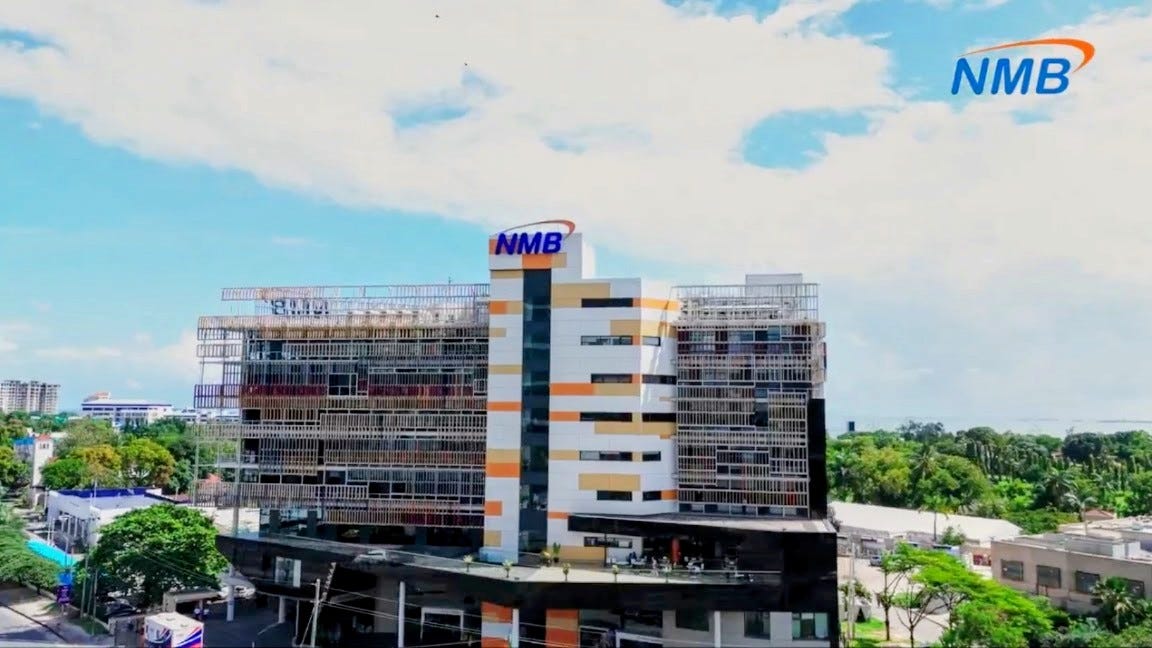How to Design Startup Programs That Don't Create Grantpreneurs
Exclusive interview with UNCDF's Tian Zhang
PesaTech helps early-stage fintechs grow through training, funding, and partnerships facilitation.
UNCDF runs this Accelerator with backing from the EU and Netherlands Embassy in Tanzania.
Last year’s edition culminated in a Demo Day on September 20.
The event showcased:
Kiasi - Enables workers with modest incomes to save money regularly
MedPack - Prevents medicine shortages at clinics, hospitals and pharmacies
Amala - Helps microfinance institutions and SACCOs manage members and loans digitally
Bizy Tech - Connects farmers to buyers, loans, and farming advice through their phones
Hashtech - Digitizes bus ticket sales and vehicle tracking
El-dizer - Provides loans to university students and recent graduates
Linda Pesa - Organizes financial records and inventory data for business owners
Shule Yetu - Automates school administration and allows parents to pay fees online
SimpliTech - Prevents TRA penalties and eliminates double invoice creation
Swahilies - Processes SME payments and provides business management tools
Tian Zhang managed those ten startups as cohort 2 manager.
So, we invited her to reveal:
The three-question test that exposes fake entrepreneurs
How startups get face time with bank executives
Why treating founders like clients changes everything
The value of a performance-based agreement
What banks actually seek in fintech partnerships
How cohort two achieved zero dropouts, and
The plan to continue without donor funding
How has PesaTech’s approach to selecting startups changed from the first cohort to the second?
For the second cohort, we refined our selection process.
After the call for applications, we conducted both an initial and an advanced review, ensuring that each application was evaluated by at least three reviewers.
From there, we shortlisted 20 startups for business and technical assessments before making the final selection.
During the review, we also considered factors such as:
How long the startup has been operating, and
How many acceleration programs they’ve previously participated in
That helped us avoid startups that apply to multiple programs mainly for funding. Their founders are what we refer to as “grant-preneurs.”
While this process is time-consuming, it allows us to identify the right companies and ensure we provide the support they truly need.
Can you elaborate on PesaTech’s unique collaboration with NMB Bank?
Our partnership with NMB goes beyond the typical mentorship model.
We organized a week-long session where startups had direct access to key departments across NMB Bank.
As one founder shared, “We had been trying to partner with banks for years, but it was difficult to find the right people.
PesaTech gave us a platform to easily connect and get feedback from bank representatives.”
Additionally, UNCDF utilizes its partnerships with banks and mobile network operators (MNOs) to help innovation hubs work with corporate partners.
They give hubs better insight into a bank’s structure, key decision-makers, and how to align their accelerator programs with bank priorities.
What key lessons from the first cohort have you applied to the structure of cohort 2?
Communication was a key area we focused on improving.
In the first cohort, we encountered some communication issues that led to complaints from startups.
For the second cohort, we took a much more proactive approach by designing a clear communication structure before project implementation.
Most importantly, we ensured that we delivered on all our commitments.
They (selected startups) are not our beneficiaries; they’re our clients. So everything we do is very client-centric.
Our job is to make their businesses better, and I don’t feel like we are helping them. Instead, we are providing our services to them.
How are you measuring the success of startups in this cohort beyond just securing funding or partnerships?
We conduct surveys before and after each workshop to gauge satisfaction and impact.
The satisfaction rate is really high.
We ask, ‘From one to ten, how do you want to recommend this program to your friend?’ Most people select ten, nine, or eight.
We’re also looking at tangible growth.
For example, one of our startups grew its loan portfolio by 158% annually since launch. That’s more than doubling its portfolio each year from TZS 1.5 million to TZS 26 million before joining PesaTech in 2024.
Can you share more about the performance-based agreement model you use with startups?
We’ve implemented a staged funding approach where startups receive between USD 5,000 and USD 15,000 based on their performance.
Each startup signs a performance-based agreement with us.
Together, we discuss their short-term goals for the next three months and identify key milestones that the seed funding can help them unlock quickly.
Every startup receives at least $5,000 in seed funding, and if they achieve the agreed milestones, an additional $5,000 is released.
We also incorporate peer review sessions in every workshop, where startups are ranked.
The top three startups can unlock even more funding. They also gain the opportunity to participate in a regional event, which expands their network.
In August 2024, Bizy Tech, El-dizer, and Swahilies were able to attend the Africa Fintech Summit in Kenya.
How are you ensuring startups gain value beyond just funding?
Beyond funding, we provide several key value-added benefits.
First is partnerships.
As a neutral partner, UNCDF has a unique advantage in facilitating collaborations between fintechs and corporates.
We leverage our existing partnerships to help fintechs form meaningful connections while also promoting collaboration between fintechs themselves.
Second is market linkages and market intelligence.
UNCDF invests significant effort in gathering insights and producing knowledge products that help the ecosystem stay updated on market trends.
For example, in 2021, we published the Tanzania Fintech Landscape Report.
Currently, we’re developing a regulatory playbook, which will guide Tanzanian fintech startups on compliance requirements when expanding into other East African countries.
PesaTech also invites experts, regulators, investors, and innovators from various countries and sectors to interact with our fintechs. Our goal is to facilitate valuable market connections.
Third is knowledge and capacity building.
We’ve made our program more intensive and customized.
Startups participate in over 200 hours of workshops. We cover critical topics like regulatory compliance, data security, and financial product design.
All sessions are essential for fintech success in Tanzania.
What specific fintech challenges unique to Tanzania are the startups in this cohort addressing?
Our startups are primarily focused on financial inclusion, particularly for underserved populations.
A lot of them are focusing on women and youth in rural areas.
We have startups working on e-ticketing with insurance components for safer travel, savings apps, agricultural insurance support, and lending apps.
These solutions provide opportunities for people who typically lack access to financial services.
Can you share your vision for how PesaTech might evolve after the third cohort?
We’re exploring several options for ensuring PesaTech’s sustainability beyond UNCDF funding.
The key is identifying a sustainable business model that demonstrates the program’s true value to startups.
We aim for innovation hubs to adapt and continue running the program.
They can potentially leverage partnerships with commercial banks, telcos, and regulators.
By doing so, we hope to create a self-sustaining ecosystem for fintech innovation in Tanzania.
We’re learning from successful models like Ecobank’s fintech partnerships, which have brought them 2 million new customers and $10 million in revenue across Africa.
Our long-term vision isn’t to stay in this market indefinitely.
But to help banks and corporations structure fintech partnerships. We urge them to recognize the importance of these collaborations for Tanzania’s economy.












